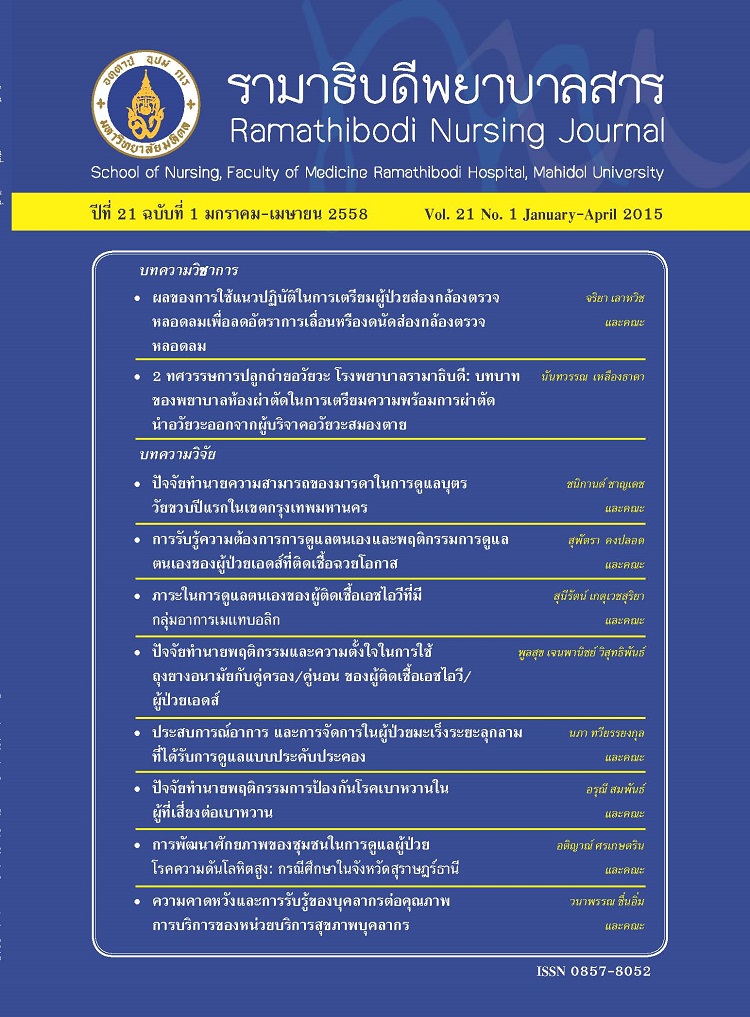Perceived Self-Care Demands and Self-Care Behavior of AIDS Patients with Opportunistic Infections
Main Article Content
Abstract
Abstract: This descriptive study aimed to explore perceived self-care demands and
self-care behavior of AIDS patients with opportunistic infections. Orem's self-care
theory was employed as the conceptual framework of the study. The sample of 70 AIDS
patients being treated for opportunistic infections in a tertiary care hospital in Bangkok
was selected by purposive sampling. The self-administered questionnaires were used
to collect data which consisted of the Demographic and Health Questionnaires, the
Perceived Self-Care Demand Questionnaire, and Self-Care Behavior Questionnaire.
Data were analyzed with descriptive statistics and Pearson’s correlation statistics.
According to the findings, the perceived self-care demands was found to be in the
moderate level and self-care behavior was found to be in the level of seldom practice.
Furthermore, the perceived self-care demand was significantly positively correlated
with perceived self-care behavior. The research findings can be used as information to
support the promotion of perceived self-care demands and self-care behavior in persons
with HIV and AIDS to prevent opportunistic infections.
Keywords: Perceived self-care demand, Self-care behavior, AIDS patients,
Opportunistic infections
Article Details
บทความ ข้อมูล เนื้อหา รูปภาพ ฯลฯ ที่ได้รับการตีพิมพ์ในรามาธิบดีพยาบาลสาร ถือเป็นลิขสิทธิ์ของวารสาร หากบุคคลหรือหน่วยงานใดต้องการนำทั้งหมดหรือส่วนหนึ่งส่วนใดไปเผยแพร่หรือเพื่อกระทำการใด ใด จะต้องได้รับอนุญาตเป็นลายลักษณ์อักษรจากรามาธิบดีพยาบาลสารก่อนเท่านั้น


